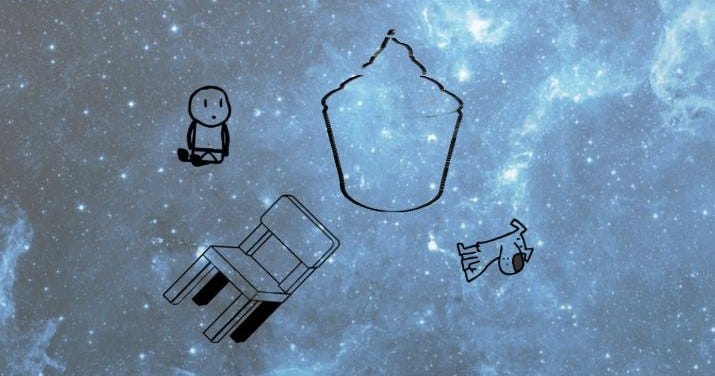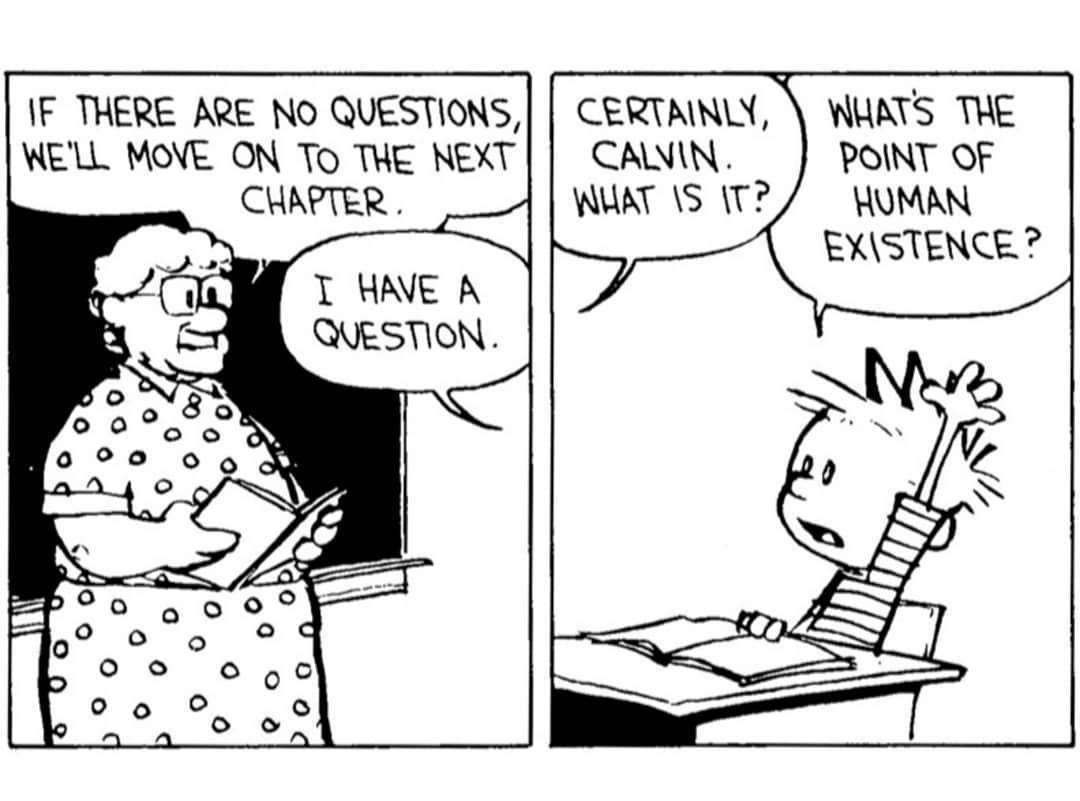There is no such thing as the meaning of life.
There's something far more powerful: the meaning that we create for our own lives.
It can difficult to write about purpose, meaning or values in today’s cultural climate. Not because it’s not relevant. I think it is more so than ever. Nor because of a lack of ideas or inspiration; there’s an abundance.
But because I feel like these concepts have been co-opted by a set of cultures that have distorted the true meaning behind these concepts.
Influencers, hustle-culture and corporations seem to weave the language of ‘purpose, meaning and values’ into almost everything these days. And as a result, it feels for me that much of it has lost its meaning. It’s creating a lot of noise, but not a lot of clarity. And it now feels as though it belongs only to those cultures. For the everyday person just trying to keep the bills at bay, family members happy, and trying to find a little time to relax somewhere inbetween, the cultural pressure of doing something ‘meaningful’ can feel overwhelming, and consequently of little relevance to many.
This co-opting has created a sense that unless you’re doing something that’s designed to fundamentally change the world, or re-invent yourself entirely, or create something new that faceless investors will want to plough huge amounts of seed money into, anything else is simply not purposeful enough. And when we create this environment around these concepts, we invite people to tune out from them. We give them reasons to say, “that isn’t for me”.
But nothing could be further from the truth. The role of purpose, meaning and values needs to belong to every single person. It’s not just the preserve of a few. Understanding these roles, and trying to figure out ways to incorporate them into our lives can be really difficult. But they’re essential to helping us to answer the question of, “How can I spend my time well?”
There’s no such thing as ‘the meaning of life’.
You don’t need to have heard a lot about philosophy, or anything really, to have heard of Plato. He was one of the original western philosophers, dating back 2,500 years in ancient Greece. He was a big deal. And he’s largely to blame for anyone thinking that the ‘meaning of life’ is something that exists, as though it’s a thing that is waiting for us to discover it, or can even be discovered.
Plato created this theory called the Theory of Forms. What it essentially boiled down to is that everything we see in the world, trees, chairs, dogs, all have one, single ‘Perfect Form’. For example, out of all the trees in the world, there is one Perfect Tree. A Perfect Chair. A Perfect Dog (the goodest of all boys). But these Perfect Forms only exist in our imaginations. They inhabit a world that we can only access if we concentrate really hard and use intense contemplation to access it.
Conversely, Plato believed that everything we see in reality, that we experience in the world, is simply a poor replica or imitation of these Perfect Forms.
He saw the world as divided into two realms: the material world of appearances, which is imperfect and ever-changing and the world of ideas or “Forms” which is perfect, unchanging and eternal. He noted that while the material realm is perceived through our senses, the realm of the Forms can only be perceived through intellect and contemplation.
He saw it as our task to apply as much contemplation as we could in order to see into the world of Perfect Forms. This would give us understanding of the ultimate meaning behind everything. He believed that within each of us lies a pre-existing ‘intuitive knowledge’. In other words, that we are all born with an innate, deeply hidden knowledge of this world of Perfect Forms, and it is our task in life to bring it to the surface through intense contemplation. This would allow us to see the perfect way things were meant to be, and therefore bring understanding along with it.
This is where the idea of ‘searching for the meaning of life’ comes from. It lives in this belief that this innate knowledge resides within us all.
Many influencers, hustle-culture exponents, media personalities and corporations are the modern day Platos. They want you to believe in this world of Perfect Forms, their world of Perfect Forms. They strive to create it in their posts, images, ways of life. You can achieve perfection, if only you access their world of perfect forms.
But problem is that we don’t live in a world of perfect, unchanging and eternal forms. We live on earth, in this messy, imperfect ever-changing reality. There is no world of Perfect Forms waiting to be discovered in this world - in our reality. And if there is no world of Perfect Forms, there is no intuitive knowledge that resides with us. There’s only the knowledge that we accumulate from the world around us as we experience it, with all its messiness.
Why does finding meaning even matter?
If there is no innate meaning of life, why should we bother considering it? Why does the concept of finding meaning matter?
Plato was right about the fact that we inhabit an imperfect world. The world is messy, unpredictable, uncertain, and always will be. But one of the ways in which we’ve evolved to deal with this is through our ability to tell stories in order to try make some form of sense of all this ambiguity that surrounds us. In order to try to understand the imperfections that we all encounter everyday, we create stories. Narratives. We as humans are story-creating machines.
It is in these stories that we find our ideas of meaning, or purpose. We are forced to create these stories to help keep a lid on all this uncertainty around us. Without them, we would simply be leaves floating on the breeze, succumbing to its every whim. And while that might sound pleasant for an afternoon, it doesn’t sound like a life anyone would want to live day after day, constantly being a victim to the forces around you as to where you end up.
That’s why we seek meaning.
But as a result, we’re left in a tricky situation. One in which we’re looking for something we desperately need – meaning - but that cannot be found - there is no world of Perfect Forms.
What must we do when we need something that we cannot find? We are left with only one option: we must create it ourselves.
We create the meaning in our lives.
Have you ever heard the term ‘existentialist crisis’? What comes to mind for you?
I remember this being thrown around in a lot of sitcoms on television and cartoon strips in the 90s and 2000s. It usually involved someone walking around and around, hands in their hair, a despondent look on their face, and asking themselves over and over again, “What is the meaning of life?”
They ask the question as though it is one that is even possible of being answered.
The common attitude towards this is that it it’s basically a waste of time. A lot of worrying about nothing.
This perception of the ‘existentialist crisis’ has created a misinterpretation of what Existentialist philosophy is all about. It’s created the idea that it’s about walking around asking questions that can’t be answered. But Existentialist philosophy is the very opposite of that.
You see, original forms of philosophy, like Plato’s, made sweeping assumptions that there was some hidden, innate meaning in the world that was waiting to be discovered. People have attempted to find it in religion, in work, in alcohol and drugs. In other words, this view created a sense that meaning already exists in the world, and we then arrive afterwards. And are then expected to spend our lives trying to find it. It makes us victims in a game we cannot win.
Existentialist philosophy comes at it from the opposite angle. It presumes that there is no innate knowledge. All we have is a blank canvas waiting for us to fill it with our experiences, and what we can learn from. It says that the first thing that happens is that we come into existence.
And we must then spend our lives deciding what our meaning – our essence - should be.
“Existence precedes essence.”
Jean-Paul Sartre
This view on meaning gives us control. It forces us to acknowledge our actions and choices are what drive meaning in our lives.
It makes us the protagonists in our own life’s narrative.
“The only way to deal with this life meaningfully is to find our passions and live them fully.”
Albert Camus
The question we are all facing, or will face, is not “what is the meaning of life?”.
The question we must ask of and explore within ourselves is:
“What is the meaning I want to create for my life?”
How we do that is difficult. But possible. And in the coming weeks, The Grey Life will explore this further.
Have a Grey Week,
Chris






